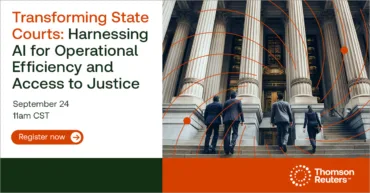It’s no secret that the first COVID-19 relief package signed in March of 2020, known as the CARES Act, was a major undertaking for government agencies at every level. And while the rollout of that initial round of aid was remarkably successful, it was not without its hiccups. Like when an independent government watchdog reported that the federal government mistakenly sent nearly 1.4 billion dollars to deceased individuals. Having learned from the challenges of the first stimulus bill, the new administration is determined to renew the public’s faith in their institutions during times of crisis. So how can state and local government agencies help protect public trust while handling the next stimulus?
What went wrong last time?
To avoid letting history repeat itself, state and local government leaders have to examine and learn from their past mistakes. Of course, the most obvious challenge was the immediate need to adapt to new safety procedures and comply with local lockdown and stay at home orders. This radical change would be enough to cause errors and delays on its own, but combined with the unprecedented surge in unemployment claims and billions of dollars in funding that suddenly need to be dispersed, it was inevitable that some mistakes would be made.
For example, in the case of the stimulus checks being sent to the deceased, the Government Accountability Office found that the IRS and Treasury Department relied on old stimulus payment procedures which did not filter payments through the death records provided by the Social Security Administration. Changing that system and checking every name against the records would likely delay all of the checks from going out, and they were specifically instructed by the CARES Act to deliver the stimulus payments “as rapidly as possible.”
In another case, a team of scammers in Huston Texas were allegedly able to steal $16 million in COVID-19 relief funds from the Paycheck Protection Program using fraudulent applications and fake IDs. While they were eventually caught, their initial success was allowed by banks who failed to catch the discrepancies against the public records. This failure was most likely because checking all of the necessary databases would be very time consuming, and they were under massive pressure to get loans approved quickly. The common thread between these cases is the need for speedy work in the face of unprecedented circumstances.
What will be different this time?
While this is a new stimulus bill, it will function and be rolled out in a very similar manner, meaning this time many of the initial wrinkles have been ironed out. This time the emphasis won’t be on speed, it will be on accuracy. And now, many agencies have adjusted to the situation and are ready to handle a new influx of work.
The latest federal stimulus bill, known as the American Rescue Plan Act, includes approximately $350 billion in fiscal relief for state and local agencies, and millions more for programs that will be managed by those same agencies. These large sums of financial aid will surely become a target for those who seek to defraud the government for their own gain. Especially since they know that this will most likely be the last opportunity for would-be fraudsters to blend in with the crowds of people who actually need support.
What steps can state and local government agencies take?
While the brunt of the work related to the ARP Act will be handled at the federal level, state and local government agencies still have an important role to play in protecting public trust in our institutions. Here are some actions that agencies can take to help manage every dollar of funding:
- Obtain access to all available public records. This means making sure that you have easy access to all of the most up-to-date public records that may be needed to appropriately manage stimulus funds, and investing in solutions that can help you organize that information.
- Don’t rely on google and social media. If you or your team regularly turn to common internet searching tools like Google, or sift through profiles on Facebook, stop. Your results will be inconsistent at best. Think about what information you are trying to find, and what public record may have it. This will save time and be more consistent from case to case.
- Look for known associates. Don’t just stop at the first name you’re given in each case. Think creatively about who else might be associated with that person and take the time to dig a little deeper. You might find that while the first name you check is fine, the people they interact with are not.
- Take the time to improve your efficiency. If your team is still struggling to keep up with the workload, consider how you can streamline your processes without cutting important steps. Establish a unified workflow with detailed instructions. In the long run, taking time to create precise guidelines can help avoid mistakes that hurt your efficiency and damage public trust.
CLEAR can help
A significant portion of the ARP Act is dedicated to helping state and local governments get the resources needed to adequately support their communities. This includes investment in tools that can improve accuracy and efficiency in their vital work. Thomson Reuters CLEAR gives state and local agencies the most complete and up-to-date public records information available in a single tool. It can also help with all of the action items above. Use the money from the new bill to invest in a tool that will help your agency protect the public’s trust.
To see how CLEAR could help your team protect public trust, sign-up for a free demo.
Thomson Reuters is not a consumer reporting agency and none of its services or the data contained therein constitute a ‘consumer report’ as such term is defined in the Federal Fair Credit Reporting Act (FCRA), 15 U.S.C. sec. 1681 et seq. The data provided to you may not be used as a factor in consumer debt collection decisioning, establishing a consumer’s eligibility for credit, insurance, employment, government benefits, or housing, or for any other purpose authorized under the FCRA. By accessing one of our services, you agree not to use the service or data for any purpose authorized under the FCRA or in relation to taking an adverse action relating to a consumer application.










